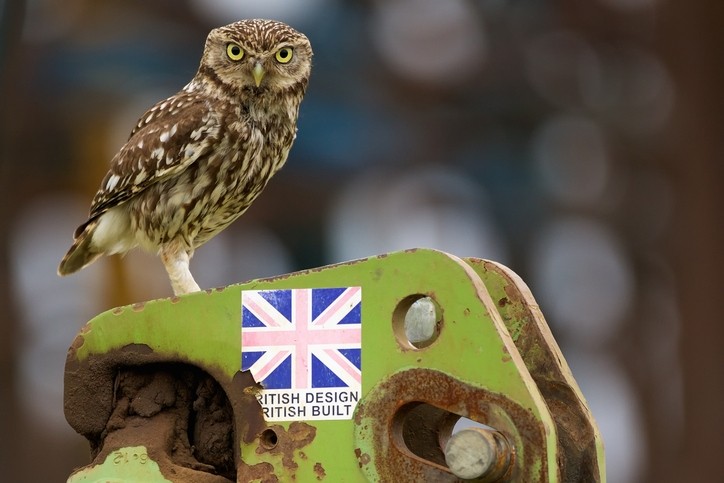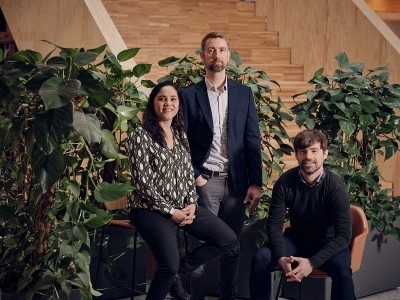UK agtech faces funding, scalability challenges amid sustainability and Brexit concerns

According to industry insiders, this gap is primarily due to a disconnect between innovators and the actual agricultural needs, a situation the UK Agri-Tech Centre aims to address by enhancing connectivity and knowledge flow across the sector.
Speaking to AgTechNavigator, UK Agri-Tech Centre CEO Phil Bicknell said, "Our universities and research institutes are globally recognised but we have underperformed in converting this knowledge into products and services adopted by end-users, compared to other advanced economies like the Netherlands, Singapore and the USA.
“This can be due to innovators and academics not understanding exactly what the industry and end-users need. This is where the UK ag-tech industry comes in, providing a nexus and coordinating hub for the sector, increasing connectivity and sector-wide awareness, and enhancing the flow of knowledge, skills and ideas.”
Funding and sustainability issues
One of the key issues acting as a barrier to the aforementioned gap is funding. The UK Agri-Tech Centre has received substantial support — including a £15 million core grant from its core funding source, Innovate UK — for 130 expert staff and nationwide facilities.
Additional funding, amounting to £8.8 million for the Centres and £76.7 million for the sector, comes from various projects. As of 1 April 2024, the UK Agri-Tech Centre’s legacy Centres, CHAP, CIEL and Agri-Epi, were involved in 127 projects with more than 223 partners. Since the Centres became operational in 2015 and 2016, the UK Agri-Tech Centre has run 437 projects with over 600 businesses, worth £126.7 million to the sector.
However, the sector still struggles to secure the right kind of funding to drive sustainability and scalability.
“Funding is available; what is key is ensuring that the right kind of funding — be it public or private investment — is available to the sector and to individual companies at the right time to allow them to progress through the Technology Readiness Levels (TRLs), scale up, cross the ‘valley of death’ and find a ready marketplace," Bicknell said.
He added that the Centre's programmes were designed to support this journey, focusing on driving sector-specific innovation, growing businesses through grant-funding advice and incubation support, and ensuring the adoption of co-developed solutions to maximise commercial potential.
Brexit impact
Another factor in the difficulties UK ag-tech faces is Brexit, though that has introduced both opportunities and challenges for the industry. One significant development is the Genetic Technology (Precision Breeding) Act, which presents new regulatory frameworks.
Bicknell said, “There is still work for us to do in this area, such as ensuring we have good insight on current and future market needs for crop varieties to ensure that we have the right Precision Bred Organisms (PBOs) coming through at the right time. Plant-breeding is a costly and research-intensive process, which will require adequate and long-term funding.”
As such, projects like the Platform to Rate Organisms Bred for Improved Traits and Yield (PROBITY) are crucial in this context, aiming to expedite the marketplace introduction of PBOs. The UK Agri-Tech Centre is involved in these projects, which aim to create a farmer-led platform enter PBOs into the marketplace in as quickly as three years.
Barriers to scaling
Scaling in the UK ag-tech sector remains a significant challenge. The sector requires long-term vision, investment, and market development to ensure the successful adoption of innovations. Rural connectivity and digital access are also critical barriers that need addressing.
While he UK ag-tech industry has substantial growth and innovation potential, overcoming funding, scalability, and market adoption challenges — particularly in a post-Brexit landscape — will be crucial for its future success.
Bicknell said, “The UK ag-tech sector can thrive, providing transformational tools for agriculture, horticulture, forestry and aquaculture. It also has significant growth prospects in the UK and internationally (but) it does require long-term vision and investment, as well as marketplace development to ensure successful adoption and business growth.
“In addition to these areas, we are focusing on issues such as rural connectivity and digital access to ensure access to information, data and other digital resources. End-users can be risk-averse and reticent to invest in unfamiliar technology and new approaches.
“Our role is to provide the capabilities and expertise that generate co-created ag-tech products and services, as well as information and data to demonstrate their effectiveness, (thereby) increasing trust and confidence in products entering the marketplace.”
Future developments and innovations
The UK ag-tech sector is poised for several significant advancements aimed at addressing grand challenges in sustainability, productivity, food security and disease pressures. The UK Agri-Tech Centre has established key areas of focus in the form of four strategic themes, namely: Sustainable Production, Resilient Food Systems, One Health and Intelligent Agriculture.
Bicknell said, "Sustainable production technologies can significantly reduce livestock methane emissions, improve soil health and carbon sequestration, and enhance biodiversity and ecosystem health. In this area, technology can make significant contributions to livestock methane emission reduction, soil health and carbon sequestration, and systems to enhance biodiversity, natural capital and ensure healthy ecosystems.”
He added creating Resilient Food Systems required “some horizon-scanning and scenario-planning” to target innovation and investment but said he could already see opportunities around novel production systems (such as controlled environment agriculture), AI, precision-breeding and bio-refining.
In the area of One Health, he said there was critical work to be done in livestock and aquaculture preventative health and welfare management, integrated pest and crop management, surveillance and warning systems to anticipate and detect pests and pathogens (such as automated in-field spore sampling for crops and pen-side diagnostics for livestock), novel vaccines and technology platforms for endemic and exotic diseases, and novel “biological” plant-based products.
Finally, Bicknell said, “In Intelligent Agriculture, there is a pressing need to support companies that will in turn support producers to accelerate the use of automation and robotics to ease labour shortages. (We must also) harness the use of data and AI to minimise inputs, reduce waste and increase yield, and introduce and support the delivery of infrastructure systems that improve connectivity and data access.”





















